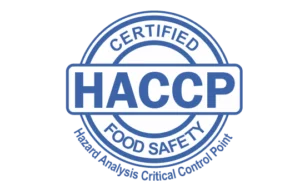HACCP Codex Alimentarius





HACCP Codex Alimentarius - General Principles of Food Hygiene - CAC/RCP 1-1969 (Rev.5-2020) - Regulation (EC) No 852/2004
Under the current Regulation 852/2004 of the European Parliament and of the Council, which replaces Directive 93/43/EEC, a Food Safety Management System, including a Hazard Analysis and Critical Control Points (HACCP) is required to be implemented, maintained and reviewed for businesses that:
Manufacture
Process
Produce
Packaging
Produce, Manufacture, Manufacture, Produce, Produce and Store
Transport
Distribute
Distribute
Offer food for sale
This includes packing plants, food industries, restaurants, catering supermarkets, hotels with catering facilities, etc.
Diagnosis of the needs of the business
The adoption of ISO 22000 food quality system (HACCP) will result in the following benefits to the business:
The company’s reputation is enhanced in terms of its ability to protect the health of the consumer
By implementing preventive measures, production costs are reduced due to the reduction of product batch rejections
The company gains a significant advantage over competitors in export activities as opportunities for penetration of international markets are opened up.
Evidence of compliance with the legislation is provided to the competent authorities.
Demonstrate the company’s sensitivity to the protection of public health and its ability to produce safe food.
It is a customer requirement as a guarantee of product safety, as it is a valid system that manages food safety (more and more companies are requiring their suppliers to have a certified HACCP system).
ISO 22000 and HACCP Codex Alimentarius
ISO 22000 has two Plan-Do-Check-Act (PDCA) cycles that work within each other, the first covering the management system, the second the operations (described in ISO 22000:2018, Chapter 8), which simultaneously cover the HACCP principles. ISO 22000 refers to the Codex Alimentarius General Principles of Food Hygiene, CXC 1-1969 which includes HACCP principles and 12 steps for implementing HACCP. A study on HACCP effectiveness between ISO 22000 certified and non-certified dairy companies identified that with the implementation of the HACCP Food Safety System (FSS) and with ISO 22000 certification, the level of achievement of HACCP objectives is significantly improved.

